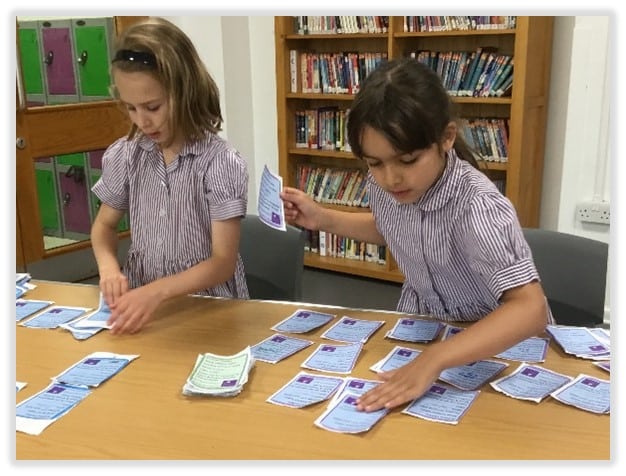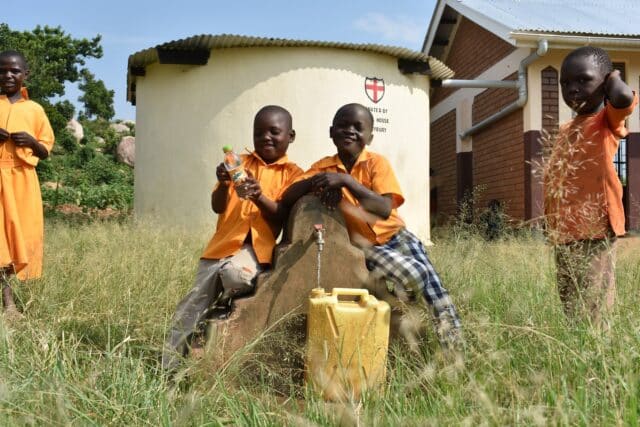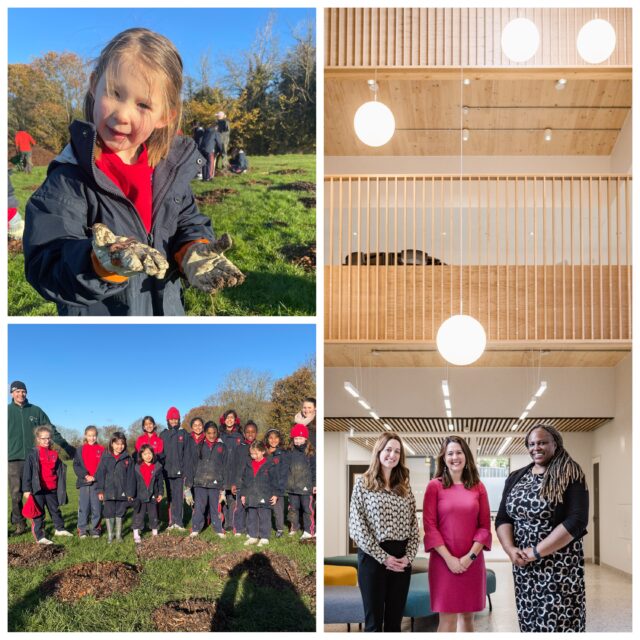Blog
Swap Don’t Shop: creative ways children can be involved in cutting their own carbon emissions
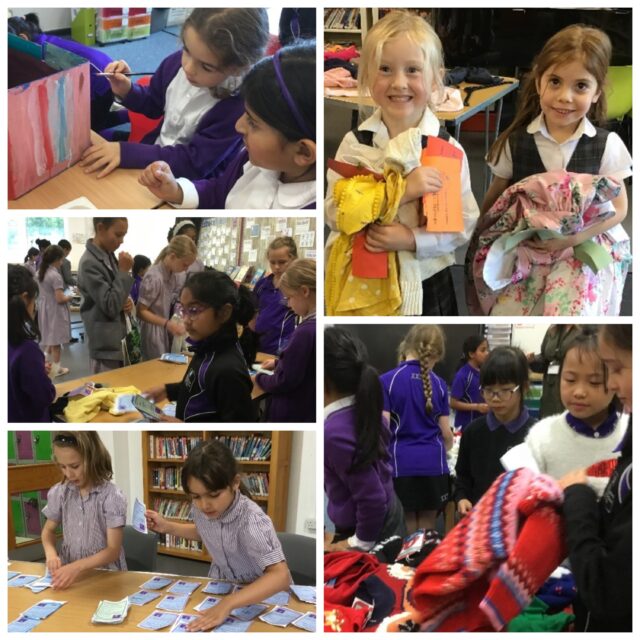
Lynne Farrand
Prep Eco-Lead, Manchester High School for Girls
Read the blog
Every year when the COP conference comes round, environmental issues come to the forefront of media attention around the world. Whilst this is clearly important, student agency can also play a vital role in developing more sustainable mindsets within our school community. Focusing on this sustainable community mindset provides a meaningful opportunity to empower our children to take positive action. Involving our students in creating a more sustainable school in a fun and engaging way has created a shift in the mindset of not just pupils but staff and parents too.
At Manchester High School for Girls, our students thrive on the additional opportunities and responsibilities that are offered to them. Being an Eco Council representative is one of these additional responsibilities, but also so much more. Members of both Senior School and Prep Eco Council work together to support our school community in making more sustainable decisions, meeting weekly as Prep Eco Council, Senior Eco Council as well as an important Y5-8 Eco Reps meeting to share across both sectors of our school. Input from our Eco Council Reps informs decisions taken by school leadership, students, teachers and parents. Last year, we were very proud to be awarded the Eco Schools Green Flag, with distinction. We were very grateful to receive this recognition of our efforts in creating a more sustainable school.
Inspired by Jane Goodall’s Roots and Shoots Eco initiative, Girls in Prep are offered the additional opportunity to take action to encourage the school community to be more environmentally friendly by joining our Roots and Shoots Club. In both Eco Council and Roots and Shoots Club, the girls know that their voice and their actions create positive ripples in the mindset of our school community. This is something they are both aware and proud of.
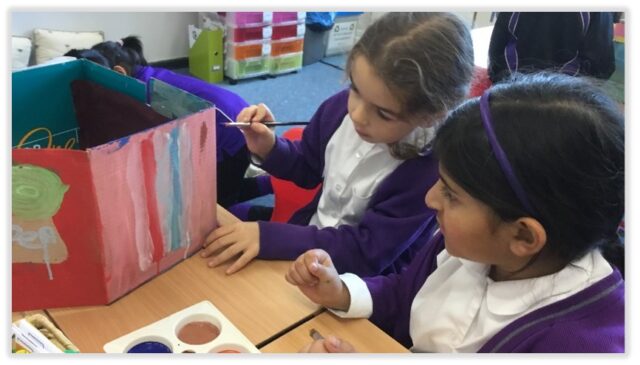
Roots and Shoots Club members designing a box to collect used and washed crisp packets in.
“No matter whether you are big or small you can make a big change in the world,” explains a Y3 member of Roots and Shoots Club.
One of the recent actions taken by members of Roots and Shoots Club has been to use their creativity to design collection boxes for items which may normally be thrown away that can be either re-used or repurposed. These colourful collection boxes are located around Prep school to help encourage members of our school community to donate rather than throw away. Items which are collected include: used crisp packets; unwanted swimwear; used pens; lost or unwanted hair bobbles. Some of these items are re-purposed within school, e.g. hair bobbles. Others are taken for recycling, e.g. pens via the Bic Writing Implements Free Recycling Scheme. Some items are donated to charity, for example swim suits, floats and goggles are given to a local charity who take swim wear to children learning to swim at schools in the Jinga region of Uganda. Perhaps most impressively, our humble used crisp packets are donated via a local initiative, Macclesfield Crisp Blankets, to be re-purposed creating waterproof bivvy bags, which reflect the bodies’ heat for homeless people living around Greater Manchester and Cheshire East. A true example of a humble, small item of what would usually be thrown away as rubbish creating a big change both for our local community and sustainably.
The level of student agency in both Roots and Shoots Club and Eco Council ensures that sustainable changes made within our Prep school community are driven by the experiences and wishes of the students. This genuinely agentic approach often identifies ideas, initiatives and opportunities that may have been overlooked by staff. Seeing sustainability through our world’s future caretakers has meant that students in Eco Council and Roots and Shoots have taken the lead role in identifying and implementing improvements within our community.
“We are like a big, super school team who help stop others wasting resources and instead encourage them to swap with each other to enjoy clothes and items which are new to them,” a Y4 member of Roots and Shoots further explained adding, “swaps are so much fun to organise. I love seeing everyone’s excitement when they swap for something which is new to them!”
Over the past 12 months, members of the Roots and Shoots Club have organised: 3 Clothes Swaps; 2 Festive Jumper Swaps; a toy and games swap; a book swap and a plants and seed swap. At each of these events, the students have been given the opportunity to decide how to: ‘price’ items; how the swapping system will work; which items we can accept and which are sadly unsuitable; how the items will be grouped and displayed. They also create notifications for parents and students about the swap events and posters to display. Many students and their families are now understanding the benefit of swapping not shopping as opposed to fast fashion.
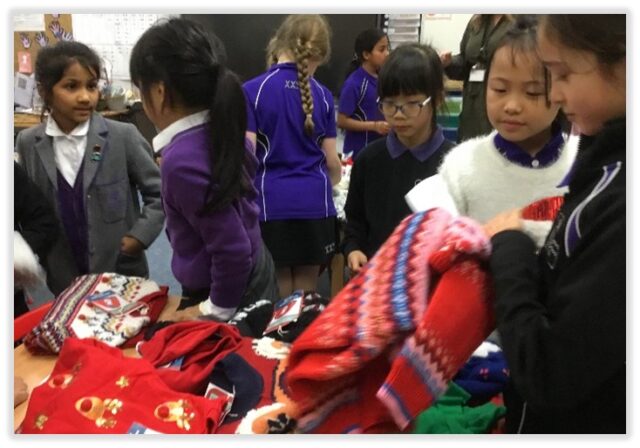
The excitement of swapping not shopping at our Clothes Swaps.
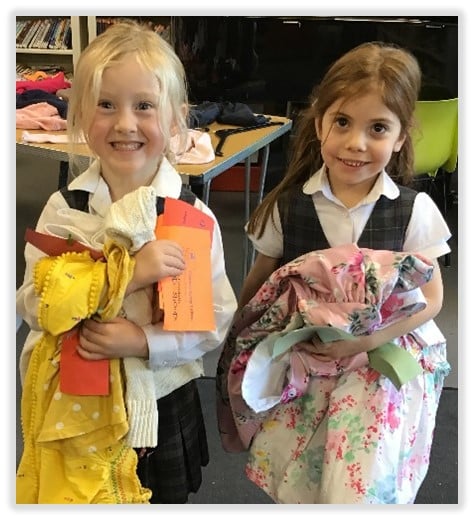
Indeed, the reduction of carbon by the simple act of swapping not shopping for clothing is something that would make most people stop and think.
According to jeans manufacturers, Levi Strauss, “a pair of its iconic 501 jeans will produce the equivalent of 33.4kg of carbon dioxide equivalent across its entire lifespan – about the same as driving 69 miles in the average car.” (source BBC article).
According to Futerra, 0.4 kg of CO2 is saved for every item of clothing that is re-used rather than bought new (source Guardian article).
The student-led approach that we have implemented at Manchester High School for Girls, has been exceedingly successful, both from the engagement of students involved in the organisational aspects, and the engagement of everyone in the school community. With regards to supporting a school community to become more sustainable and environmentally minded, it seems that small actions really do create the biggest ripples in a communities’ mindset.
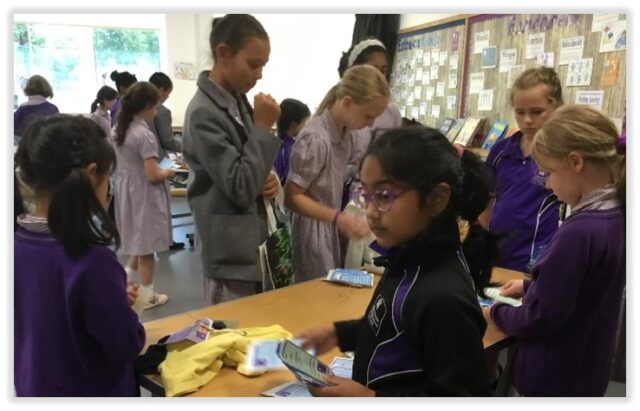
Roots and Shoots club members are collecting in tokens to process the swaps and account for how much reduction we made in the communities’ carbon footprint.
